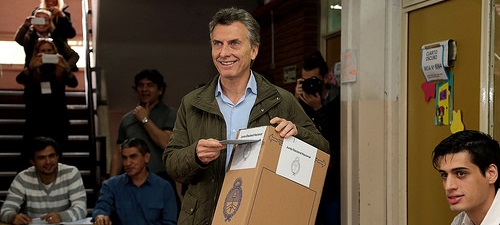 |
| Photograph: Bundestag by Hernán Piñera in 2011 (License) |
When the exit poll for yesterday's German Federal Election was released, it provided a lot of expected answers. Angela Merkel will be Chancellor for a fourth time and the far-right has managed to be elected to the Bundestag for the first time since the war.
The numbers where not quite as expected though. Merkel's CDU and their traditional opponents, the social democratic SPD, both managed to underperform polls that had already suggested losses were to be expected. The CDU fell nearly 9%, the SPD 5%.
There were gains though for the Left and Centre parties. Die Grune and Die Linke, the Greens and the Left, both gained half a percent, while the market liberal FDP did better than expected to reach around 11% and will return from losing all their seats in 2013.
The far-right also made larger gains than expected, though they failed to breach what seems to be the West European threshold of 13% - in Britain, Netherlands, France and now Germany no far-right party has managed to get beyond that number.
What Next?
Once the calculations of seat numbers are completed, the next step will be to form a government. The most likely combination at the present time will be a Black-Gold-Green combination: CDU-FDP-Grune.
It has been said that the great difficulty there is in pinning down what Markel and the CDU actually stand for has played largely to their benefit. It will help them again in trying to form a government uniting conservatives, liberals and greens.
While the CDU and FDP have previously formed coalition governments with distinctly pro-market, pro-business, centre-right leanings, the presence of Die Grune in government would likely force the parties to at least stick in the Centre ground that the SPD and CDU grand coalition had navigated.
What that opens up if the possibility of progress on social issues. Both the FDP and the Grune care about sustainability, about human rights & civil liberties, and about Europe (though not without some Eurosceptics in the FDP fold).
With the social democrats and the radical democrats of SPD and Die Linke in opposition, socially progressive parties will have strong presence in government and hold a narrow majority in the Bundestag - not counting those numbered among the CDU.
Things will be unlikely to be that simple. The FDP has been somewhat erratic on policy in recent years - likely a result of their collapse after coalition with Merkel's CDU - and have been trying to find a distinct voice.
As far-right success in the UK - in the polls and at the ballot box though not in terms of seats - spooked the harder right of the Conservative Party, the predominantly conservative CDU may have the same struggle ahead of it.
Die Grune will also face a difficult few weeks ahead. Presented with the opportunity to push, a possibly very strong, environmental and sustainability agenda from government will be weighed up against the damage that an alliance with conservatives and pro-business liberals may do to their image in the long term.
Resist the Far-Right
As for the far-right, the narrative of a rising tide has failed to produce the sweeping victories predicted. The return of the far-right in Germany is significant, but it fits better with a broader Western European context than with an historical German context.
And that can be seen in where their support came from. Mirroring patterns elsewhere, three quarters of the far-right's voters came from other parties or where previously non-voters: disaffection, disillusionment and lost trust that follows a broader pattern.
It is also unlikely that the full 24% of those who are not first time voters for the far-right (approximately 1.5m) will be racists, fascists or otherwise broadly intolerant. As elsewhere, the far-right in Germany is visciously, bitterly, internally divided.
In the Bundestag they will be frozen out and they will face protests and public outcry everywhere they go. The far-right remains a long, long way from power and influence.
There is a chance in Germany to make progress in the next four yearsand a chance to repair the hurts born of a decade of crisis. Getting on with salving those wounds will sap the far-right's appeal. Greater exposure and scrutiny may do the rest.
References
'German election: Merkel wins fourth term, AfD nationalists rise'; on the BBC; 25 September 2017.
Alberto Nardelli's 'Germany – #BTW17 election – ARD exit poll'; from Twitter; 24 September 2017.
'German elections 2017: full results - Angela Merkel has secured a fourth term as German chancellor after Sunday’s election for a new Bundestag, the federal parliament. However, her authority has been diminished. Meanwhile, the radical rightwing AfD has entered parliament as the third-largest party. We analyse the official results'; in The Guardian; 24 September 2017.
Jefferson Chase's 'What you need to know about Germany's liberals, the Free Democratic Party: After four years without representation in the Bundestag, the FDP is back. Here's what you need to know about the small party that could hold the keys to power'; from DW; 24 September 2017.
'Also for context: far-right in WEur take votes from most parties & mix it with (usually) non-voters. Disaffection/lost trust factors. #BTW17'; from The Alternative on Twitter; 24 September 2017.





